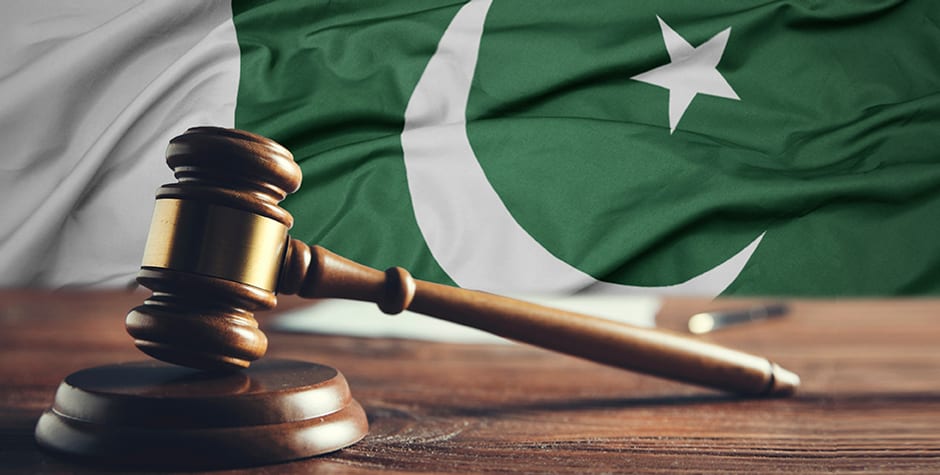Appeal Filed in Blasphemy Case at Pakistan's Supreme Court As Christian Brothers Face Execution
We recently informed you that the Lahore High Court, Rawalpindi Bench, in Pakistan upheld the conviction of two Christian brothers, Amoon Ayub and Qaiser Ayub, who were both charged with blasphemy and sentenced to execution by hanging. Last week, their preliminary appeal was filed at the Supreme Court of Pakistan. The brothers’ fate will now be decided by the country’s highest court.
As we discussed in our previous post, the charges against the Ayub brothers were initially filed in June 2011 when a Muslim man came across a blog that contained offensive material about Islam. The blog also had the name, phone number, email address, and the office address of the alleged author. The name listed was Qaiser Ayub, the older of the two brothers. The office address and the phone number listed belonged to Amoon, the younger brother and our Pakistani affiliate’s client. Based on the contact information listed on the blog, the police filed charges against both brothers.
Qaiser was arrested in November 2014 and Amoon in April 2015. Since then, both brothers have been incarcerated. The trial court convicted them in December 2018, erroneously reasoning that the presence of the Ayub brothers’ contact details on the blasphemous website clearly led to the conclusion that they were responsible for creating the website. However, these are only conjectures and do not lead to such a conclusion. Anyone can create a website and post anybody’s name and address.
Our affiliate office in Pakistan filed an appeal to the High Court. Two years later, the High Court heard arguments.
Announcing the decision on June 8, 2022, the Lahore High Court’s two-judge bench, comprising of Mr. Abdul Aziz and Mr. Raja Shahid Mehmood Abbasi, upheld the death sentence for the Ayub brothers. Sadly, this decision was flawed because the court stated that, according to the Cyber Crimes Report’s technical analysis, the website in question was created using the landline phone number and email address listed on the website. Except, the Cyber Crimes Report says no such thing. What it says is that the contact information available on the website belongs to Qaiser and Amoon.
Using a phone line (in the past, phone lines were used to connect to the internet) to upload material on a website and someone’s phone number appearing on the website are two very different things. The former shows culpability and the latter does not. But, to the court, they both meant the same thing. No one contests the fact that the Ayub brothers’ name, address, and phone number appeared on the website. But that does not prove they are the ones who posted that information or the blasphemous material.
In fact, the same Cyber Crimes Report states that the cyber-crimes department sent multiple requests to the company that owns the website, inquiring about the identity of the person who posted the material on the specific blog in question, but did not get any response. The court simply disregarded this vital piece of evidence. In short, the prosecution had no evidence that the Ayub brothers posted the blasphemous material.
In the 21-page opinion, the court also discussed various religious texts, justifying the blasphemy convictions. As another justification for Pakistan’s blasphemy laws, the court provided a list of several countries, including some western countries, where blasphemy laws are still on the books.
Finally, citing a 1991 Pakistani case which made the death penalty mandatory in cases of blasphemy against the Prophet Muhammad, the Lahore High Court upheld the Ayub brothers’ death sentence.
Having already spent about eight years in prison, the Ayub brothers will now have to wait for the Supreme Court to schedule a hearing for arguments. This could take several more years. Remember the case of Asia Bibi, a Christian mother, who spent about nine years in prison while the case moved from the trial court to the High Court and finally to the Supreme Court before she was eventually freed after an international advocacy campaign we participated in.
We hope that the Supreme Court of Pakistan will schedule a hearing soon and will decide based on evidence and not on presumptions. Attorneys working with our affiliate office in Pakistan are preparing a legal brief that will be filed with the Supreme Court before oral arguments.
